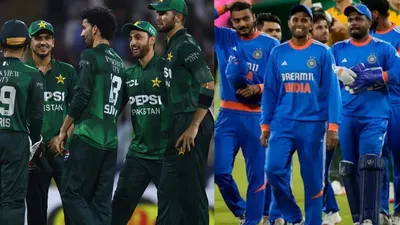
The India vs Pakistan clash has always been the jewel in the crown of any multi-nation tournament. Whether it’s the Asia Cup, a World Cup, or a bilateral series from the past, this rivalry has historically drawn full houses, exorbitant resale ticket prices, and packed television ratings. Yet, for the Asia Cup 2025 encounter scheduled on September 14 in Dubai, ticket sales have been surprisingly slow, leaving organisers scrambling for answers.
One of the most obvious reasons lies in the pricing model. Tickets for the marquee fixture have been pegged far higher than usual. Even general admission seats are priced at levels beyond the reach of many average fans, while premium and hospitality sections are costing sums equivalent to a small holiday package. Making matters worse, organisers have tied many of these tickets to multi-match bundles. This means that fans desperate to attend the India-Pakistan showdown must also pay for tickets to less attractive fixtures involving other teams. The approach has left supporters frustrated, feeling exploited rather than valued.
There is also the matter of star power—or the perceived lack of it. For years, India-Pakistan contests were synonymous with the likes of Virat Kohli, Rohit Sharma, and MS Dhoni facing off against Babar Azam, Shaheen Afridi, or Shahid Afridi in earlier eras. With Kohli and Rohit stepping away from the T20I format, some feel that the emotional weight of the rivalry has diluted. While Suryakumar Yadav, Shubman Gill, and young Pakistani talents bring plenty of quality, the generational aura of the departed giants is difficult to replace in the minds of traditional fans.
Another factor impacting sales is the setting itself. Dubai and Abu Dhabi have become routine hosts for India-Pakistan matches due to political barriers preventing bilateral series, but this has somewhat dulled the novelty. Fans are no longer rushing to UAE stadiums as they once did when these encounters were rare and electrifying. Add to that the sweltering September heat in the Gulf region, and casual spectators find little incentive to spend heavily on match tickets when home viewing offers comfort.
There are also broader economic and political dimensions at play. For South Asian expatriates in the Middle East, the backbone of the fan base, rising living costs are already straining household budgets. The idea of paying inflated prices for one night of cricket feels unrealistic. Meanwhile, the always-sensitive political undertones between India and Pakistan make some spectators wary of attending high-profile matches in person.
The slow ticket uptake is a wake-up call for organisers. Cricket may be a passion, but it cannot exist outside market realities. Unless single-match tickets are released at affordable rates, empty seats could be a real embarrassment in what should be the Asia Cup’s most electrifying fixture.
Still, late surges are common. History shows that South Asian fans often wait until the last week to make purchases, and the intensity of the rivalry may yet drive a wave of ticket-buying as matchday nears. But the message is clear: even India vs Pakistan cannot be priced beyond reason.
12BET Shortlisted for Sportsbook Operator of the Year at SBC Awards 2025

